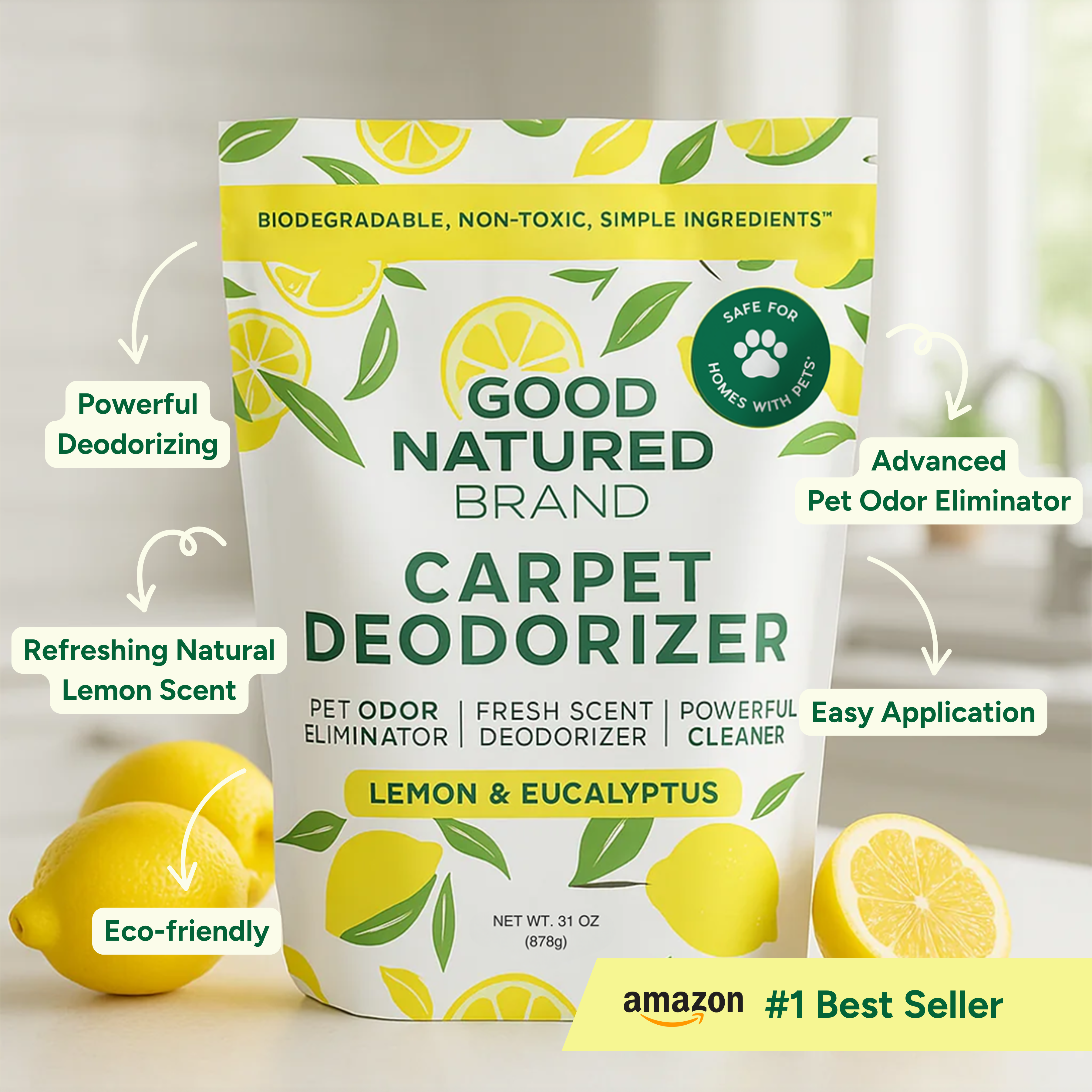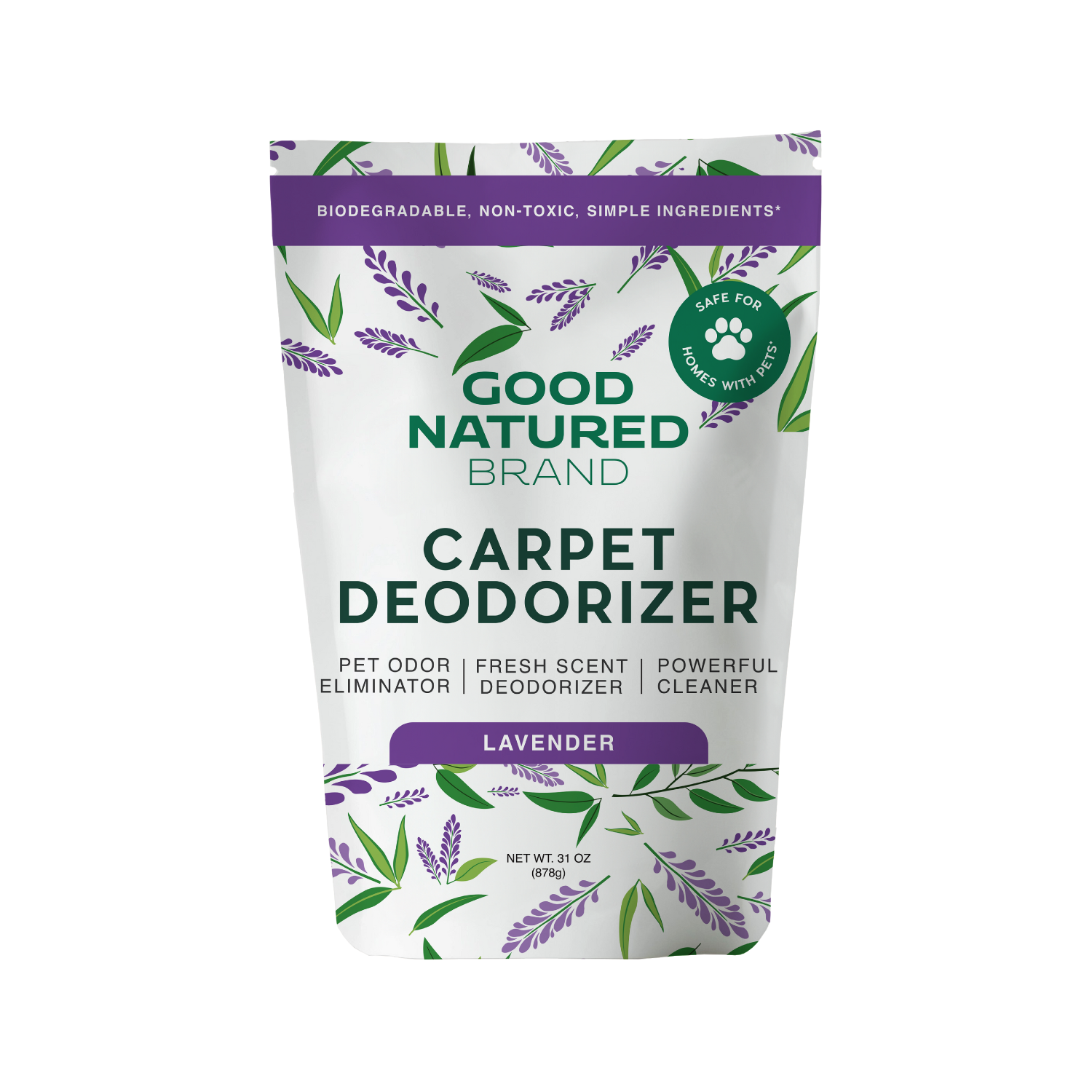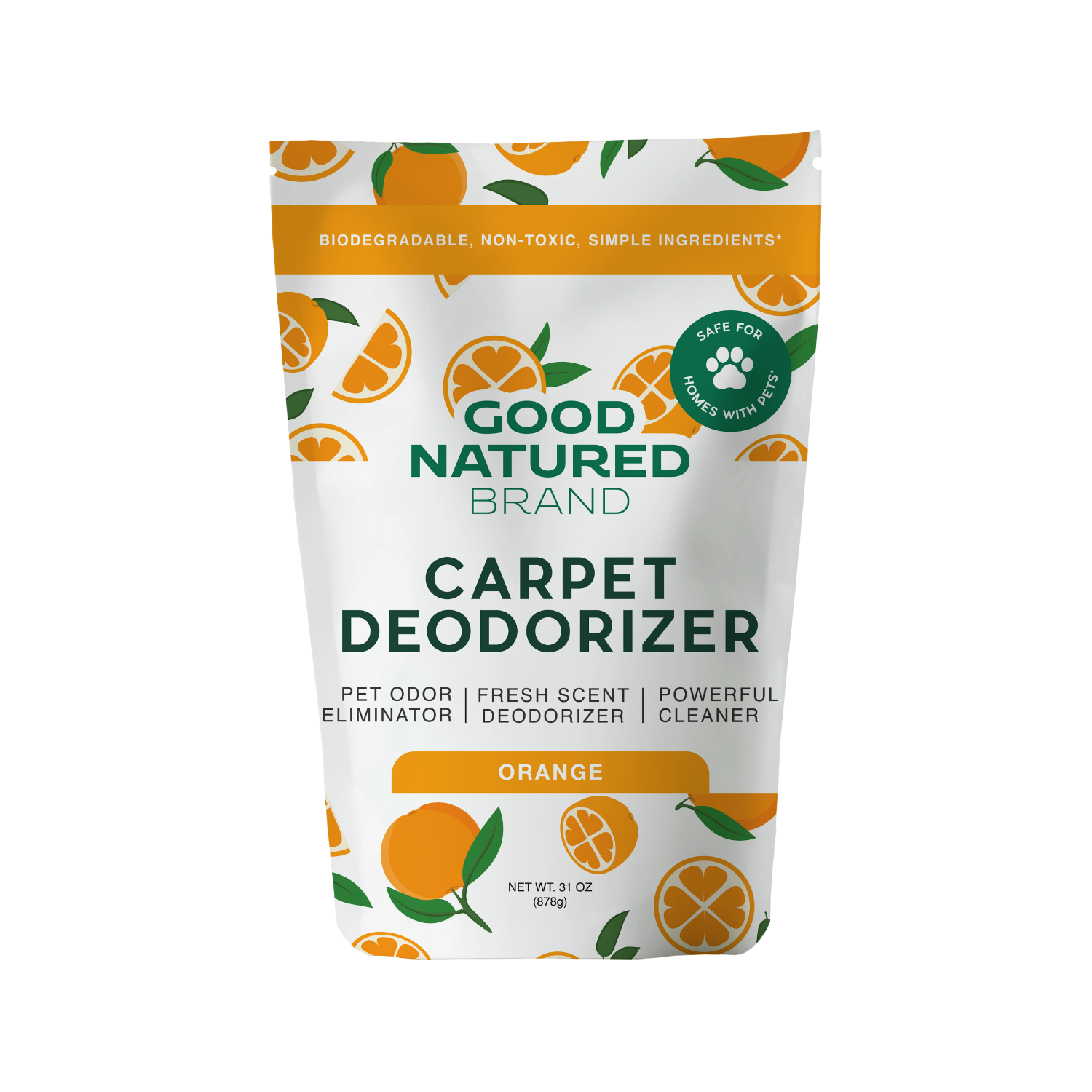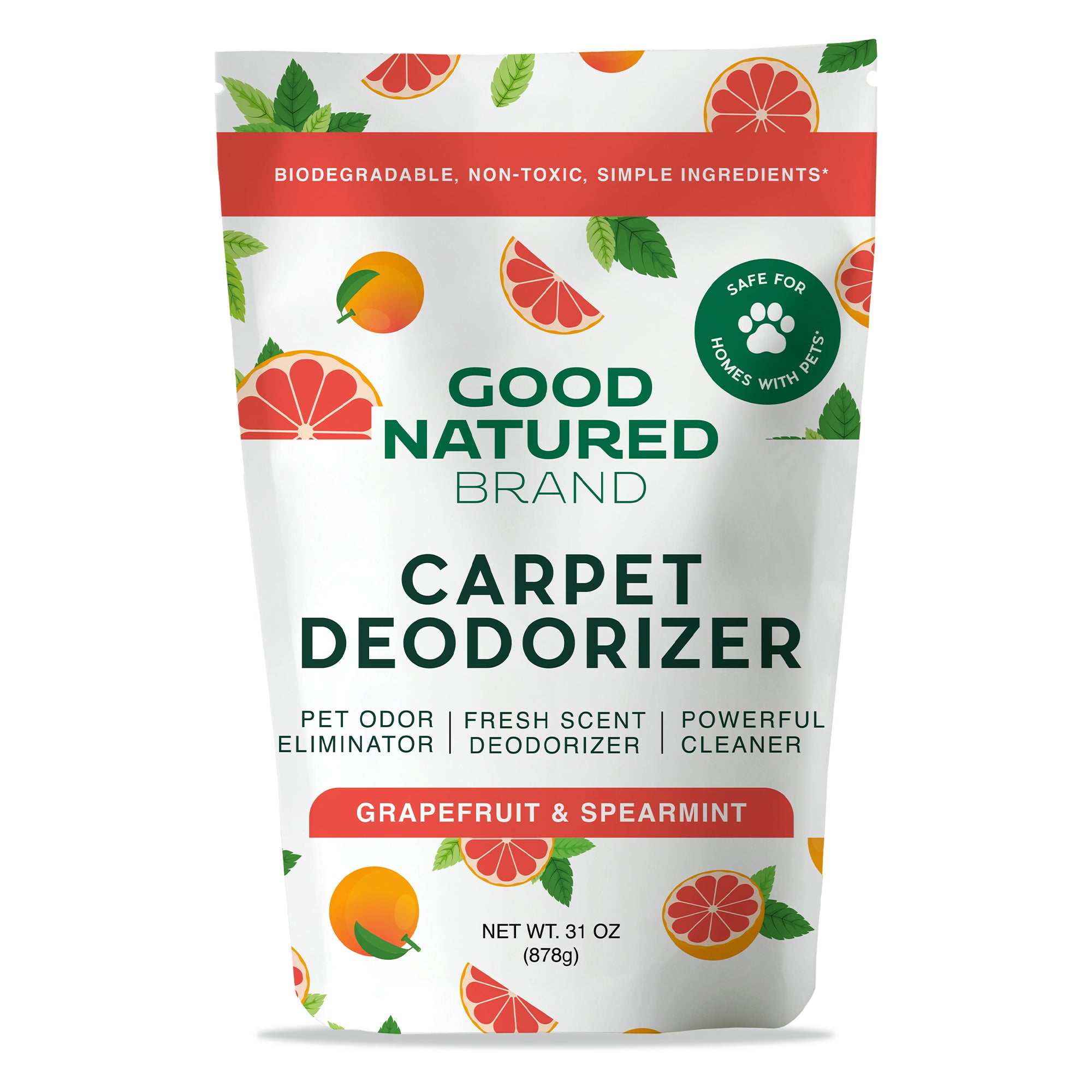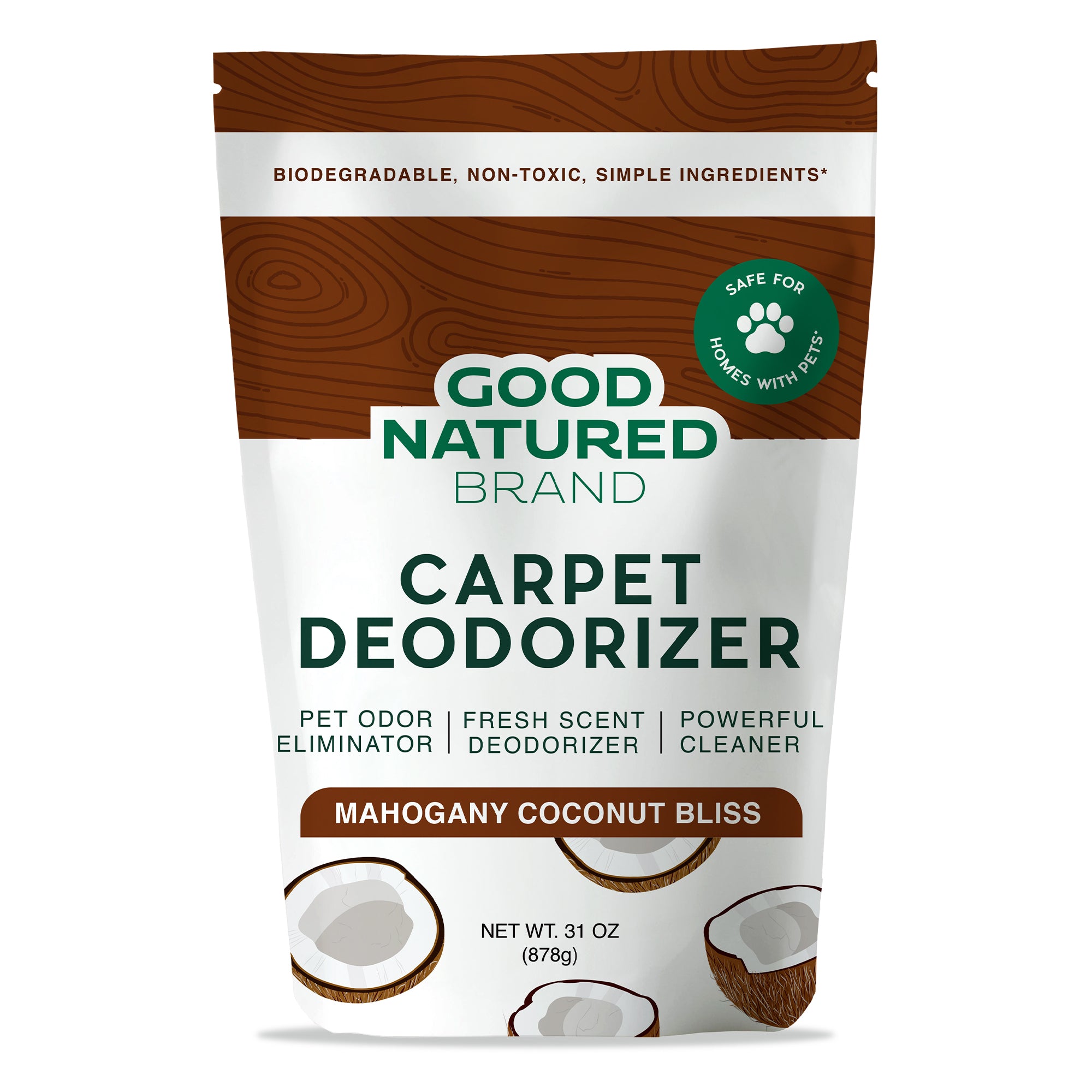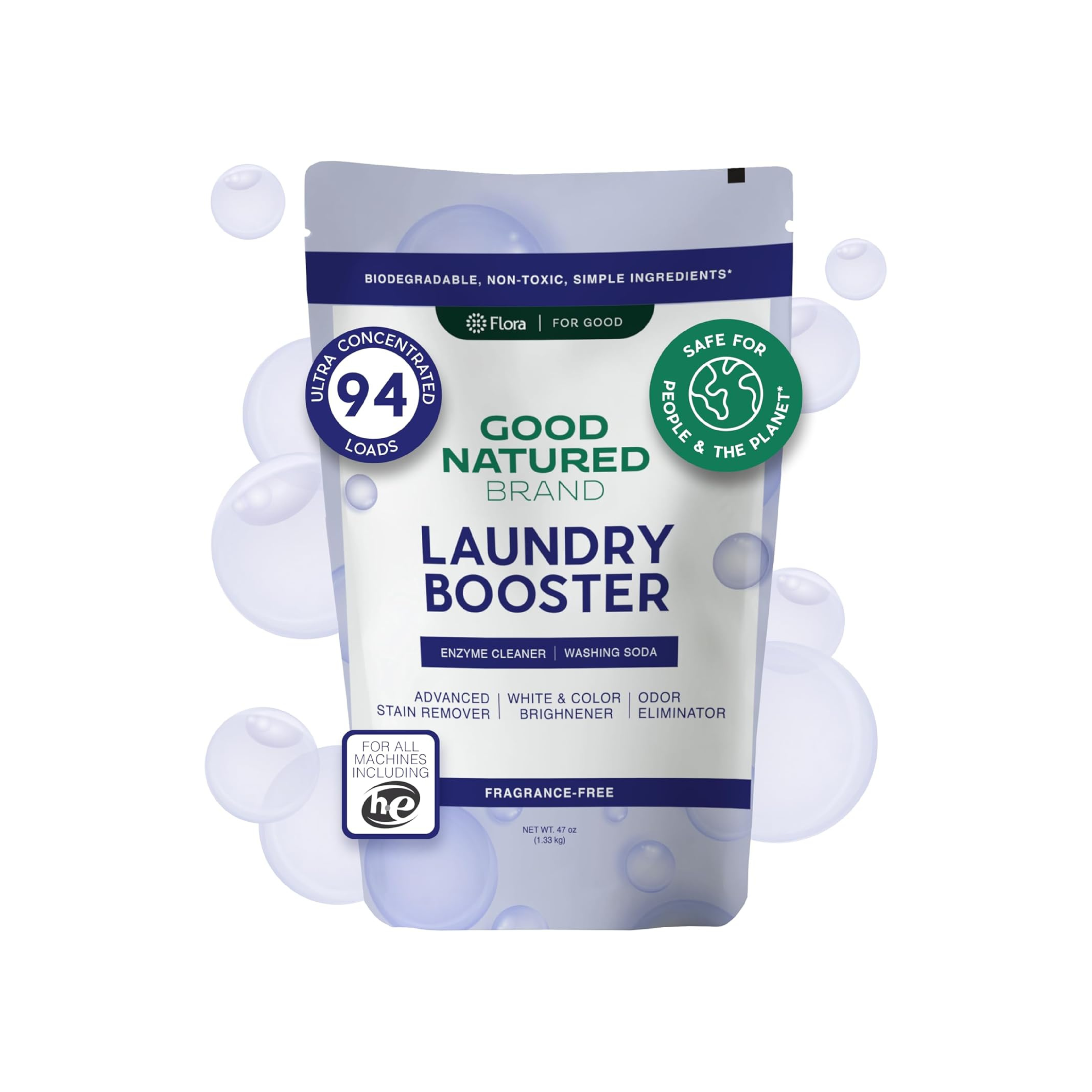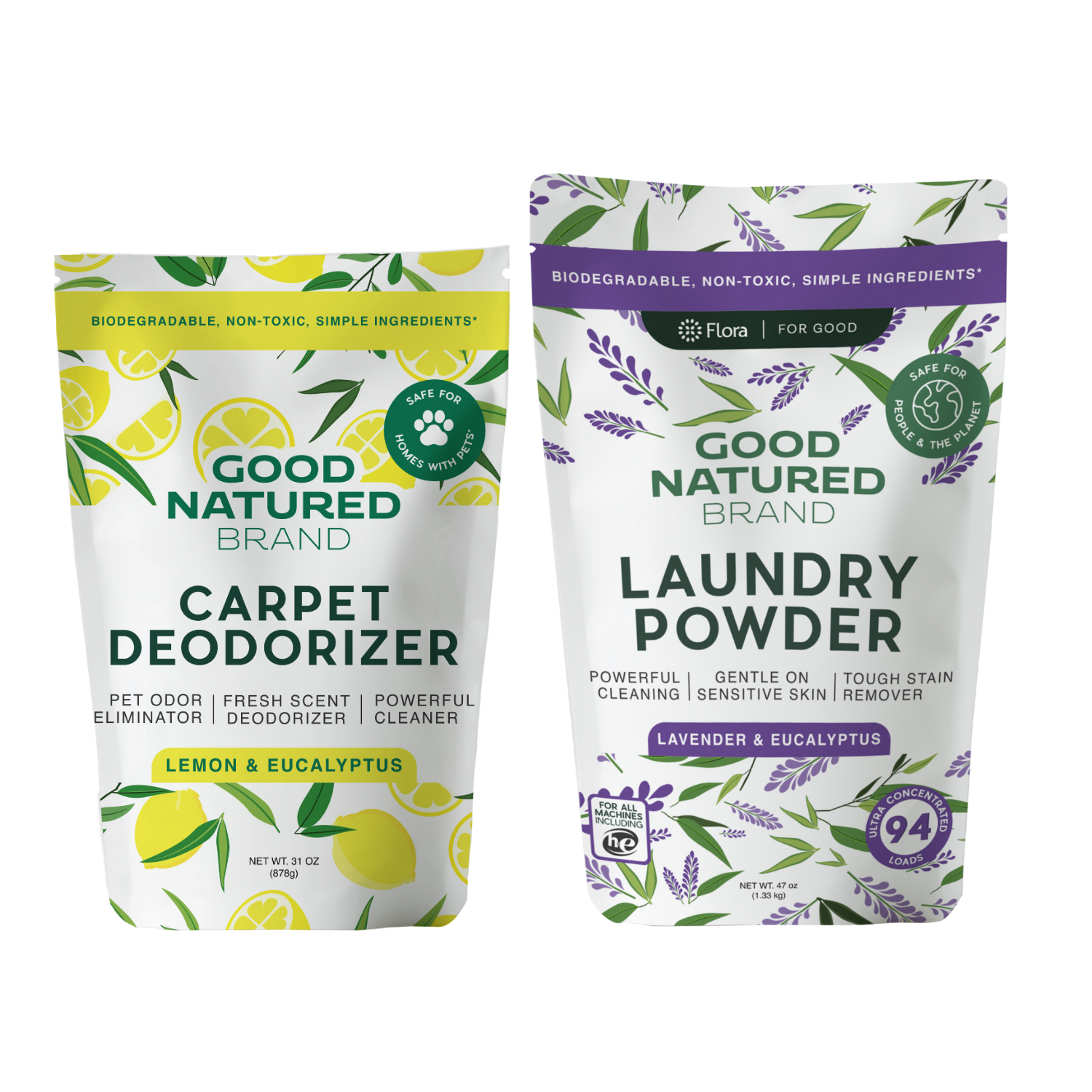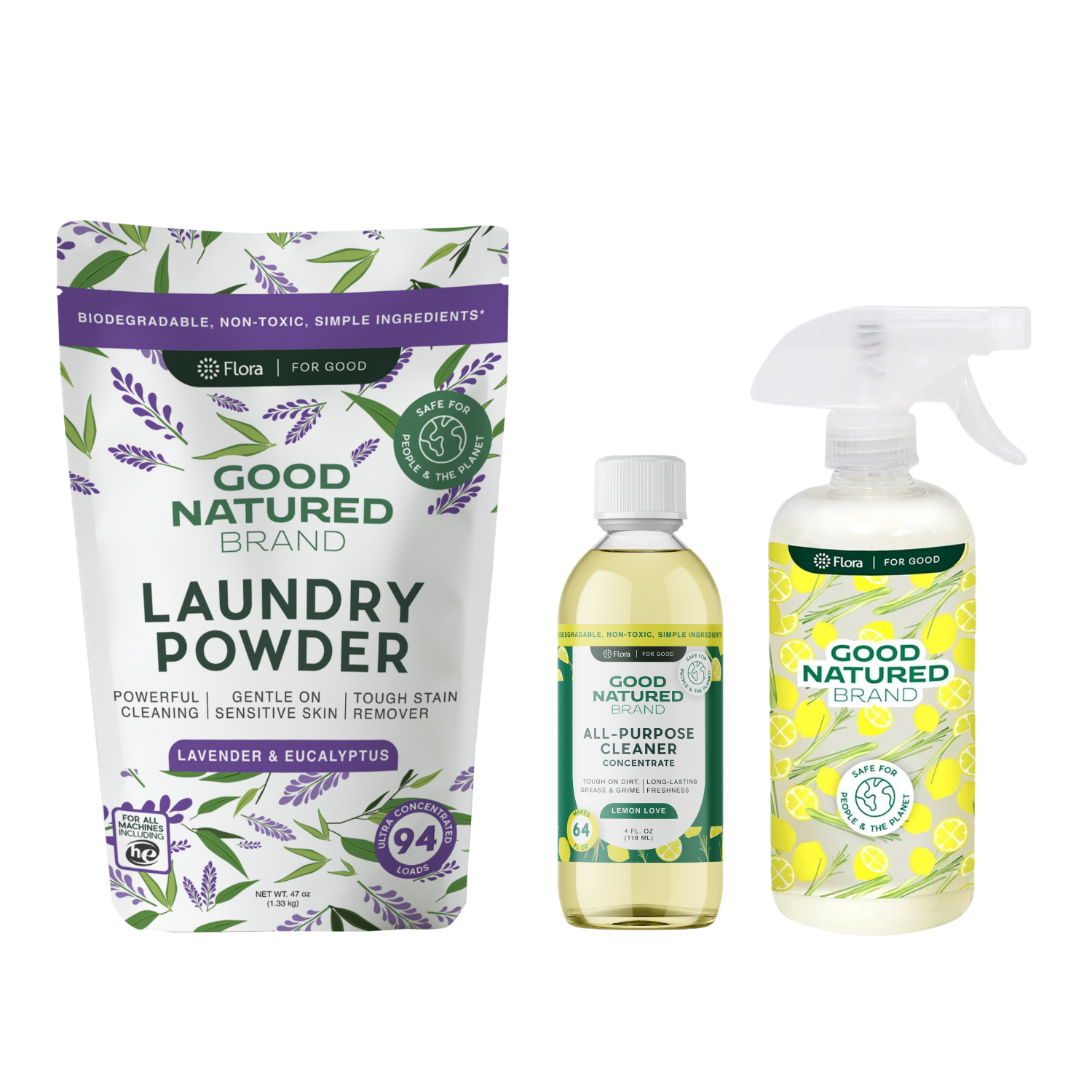Can Dogs Eat Greek Yogurt?
Greek yogurt is a popular and nutritious food for humans, praised for its probiotic content and creamy texture. As a dog owner, you may wonder, can dogs eat Greek yogurt? The good news is that, in moderation, Greek yogurt can actually be a safe and healthy treat for dogs. However, there are important factors to consider, such as lactose intolerance, the type of yogurt, and portion size.
This blog will explore whether Greek yogurt is beneficial for dogs, the potential risks, how to safely introduce it into your dog's diet, and alternative treat options. By understanding the pros and cons, you’ll be better equipped to decide whether Greek yogurt should be part of your dog’s diet.
For more tips on keeping your dog healthy and happy, check out the Good Natured Brand Blog.
What Is Greek Yogurt?
Greek yogurt is a type of strained yogurt that has a thicker consistency and higher protein content compared to regular yogurt. It’s made by straining out most of the liquid whey, which leaves behind a creamier, denser texture. Greek yogurt is rich in probiotics, which are live bacteria and yeasts that are beneficial for digestion and overall health.
In terms of nutrition, Greek yogurt contains a significant amount of protein, calcium, and essential vitamins like B12 and riboflavin. It’s also lower in sugar and carbohydrates than regular yogurt, making it a more suitable option for dogs. Because of its dense texture and nutritional benefits, Greek yogurt is often recommended as a healthier choice for both humans and pets.
When considering feeding Greek yogurt to your dog, it’s important to choose plain, unflavored varieties, as flavored yogurts often contain added sugars or artificial sweeteners that are harmful to dogs. Also, avoid yogurts with additives or preservatives, as these can cause digestive upset.
Can Dogs Eat Greek Yogurt?
Yes, dogs can eat Greek yogurt in moderation, and it can be a healthy addition to their diet. Greek yogurt offers several benefits for dogs, including probiotics that promote healthy digestion, high-quality protein for muscle maintenance, and calcium for strong bones.
However, not all dogs can tolerate dairy products, especially if they have lactose intolerance. Lactose is a sugar found in dairy, and some dogs lack the enzyme lactase, which is necessary for digesting lactose. If your dog is lactose intolerant, feeding them Greek yogurt can lead to stomach upset, diarrhea, or bloating.
To determine whether your dog can enjoy Greek yogurt safely, start with small amounts and monitor their reaction. If you notice any signs of digestive discomfort, such as gas, diarrhea, or vomiting, it may be best to avoid yogurt and consult your veterinarian.
While introducing new foods into your dog’s diet, it's also important to keep their living space clean. If your dog gets messy during treat time, you can rely on Good Natured Brand All-Purpose Cleaners to keep your home fresh and safe for both you and your pet.
Benefits of Greek Yogurt for Dogs
Greek yogurt, when fed in moderation, offers several potential health benefits for dogs. Here’s why it can be a good option:
Probiotics for Digestive Health
One of the most significant benefits of Greek yogurt is its probiotic content. Probiotics are beneficial bacteria that help maintain a healthy gut. These live cultures can support your dog’s digestive system by balancing the bacteria in their intestines. This can be particularly beneficial for dogs with digestive issues, as probiotics may help prevent or alleviate diarrhea and other gastrointestinal problems.
Regular consumption of Greek yogurt can also help boost your dog’s immune system, as a healthy gut plays a key role in overall health. However, remember to choose plain Greek yogurt without added sugars or artificial sweeteners, as these can harm your dog.
High-Quality Protein
Greek yogurt is an excellent source of protein, which is essential for building and repairing tissues in your dog’s body. Protein supports muscle growth, helps in the production of enzymes and hormones, and is crucial for maintaining a healthy coat and skin. Greek yogurt provides a more concentrated form of protein compared to regular yogurt, making it an ideal treat or supplement for active or growing dogs.
Calcium for Bone Health
Calcium is vital for maintaining strong bones and teeth, and Greek yogurt is a rich source of this essential mineral. For dogs, calcium plays a significant role in bone density, muscle function, and nerve transmission. Regular intake of calcium, along with other key nutrients, can help keep your dog’s skeletal system healthy and strong.
Low Lactose Content
Unlike regular yogurt, which contains higher amounts of lactose, Greek yogurt is lower in lactose due to the straining process. This makes it easier for many dogs, especially those with mild lactose intolerance, to digest Greek yogurt without experiencing discomfort. If your dog tolerates Greek yogurt without issues, it can be a safe alternative to regular dairy products.
However, if you’re unsure whether Greek yogurt is right for your dog, it’s always a good idea to consult with your veterinarian. Your vet can provide guidance based on your dog’s individual health and dietary needs.
When giving your dog Greek yogurt, remember to provide it in moderation. Too much dairy can lead to obesity or digestive upset, so always stick to recommended serving sizes. For tips on how to clean up after treat time, you can use Good Natured Brand Carpet Deodorizers to keep your living space smelling fresh and clean.
Potential Risks of Feeding Greek Yogurt to Dogs
While Greek yogurt offers numerous benefits, it’s not suitable for every dog. There are a few potential risks to keep in mind:
Lactose Sensitivity
Not all dogs are able to digest lactose properly. Lactose intolerance occurs when a dog’s digestive system lacks the enzyme lactase, which is needed to break down lactose. If a lactose-intolerant dog eats Greek yogurt, they may experience symptoms like:
-
Diarrhea
-
Bloating
-
Gas
-
Vomiting
If your dog shows any of these symptoms after consuming Greek yogurt, it’s best to discontinue feeding it to them and consult with your veterinarian.
Added Sugars and Artificial Sweeteners
Flavored Greek yogurts often contain added sugars, which are not suitable for dogs. Some flavored yogurts also contain artificial sweeteners, such as xylitol, which is highly toxic to dogs. Xylitol can cause a rapid drop in blood sugar, seizures, liver failure, and even death in dogs. Always choose plain, unflavored Greek yogurt without any added sweeteners or preservatives.
Overconsumption and Weight Gain
While Greek yogurt can be a healthy treat in moderation, overfeeding it to your dog can lead to weight gain, as it is relatively high in calories. Additionally, if your dog already has a balanced diet, adding too many extra calories in the form of yogurt can disrupt their overall nutritional balance.
Allergies and Sensitivities
Some dogs may be allergic to dairy or have sensitivities to certain ingredients in yogurt. If your dog develops skin rashes, excessive itching, or other signs of an allergic reaction after eating Greek yogurt, it’s best to stop feeding it to them and check with your vet.
If you have a dog prone to sensitivities or allergies, ensure that their environment is kept clean and free of irritants. You can use Good Natured Brand All-Purpose Cleaner to safely clean surfaces around your home, minimizing exposure to allergens.
How to Safely Feed Greek Yogurt to Your Dog
Introducing Greek yogurt into your dog's diet can be a delightful treat, but it's essential to do so safely to ensure your pet's health and well-being.
Start Slowly and Observe
Begin by offering a small amount of plain, unsweetened Greek yogurt to your dog. Monitor them for any signs of digestive upset, such as diarrhea, bloating, or gas. If your dog shows any adverse reactions, discontinue feeding yogurt and consult your veterinarian.
Choose the Right Type of Yogurt
Opt for plain, unflavored Greek yogurt without added sugars or artificial sweeteners like xylitol, which is toxic to dogs. Ensure the yogurt contains live and active cultures to provide probiotic benefits.
Serve in Moderation
Yogurt should be considered an occasional treat, not a regular part of your dog's diet. A general guideline is that treats should make up no more than 10% of your dog's daily caloric intake. For small dogs, a teaspoon of yogurt is sufficient, while larger breeds can have up to a tablespoon.
Incorporate into Meals or Use as a Treat
You can mix a small amount of Greek yogurt into your dog's regular food to enhance flavor and provide additional nutrients. Alternatively, freeze yogurt in silicone molds to create refreshing frozen treats, especially during warmer months.
Clean Up After Treat Time
After your dog enjoys their yogurt, it's important to clean up any spills or messes promptly. Using natural cleaning products like Good Natured Brand All-Purpose Cleaner can help maintain a clean environment without exposing your pet to harmful chemicals.
When to Avoid Feeding Greek Yogurt to Your Dog
While Greek yogurt can be beneficial for many dogs, there are certain situations where it should be avoided.
Lactose Intolerance
Some dogs are lactose intolerant and may experience digestive issues after consuming dairy products. If your dog shows signs of discomfort after eating yogurt, it's best to avoid it and consult your veterinarian.
Allergies to Dairy
Dogs with known allergies to dairy products should not be given Greek yogurt. Symptoms of a dairy allergy can include itching, swelling, and gastrointestinal upset.
Health Conditions Requiring a Special Diet
Dogs with certain health conditions, such as pancreatitis or obesity, may need to avoid high-fat foods like yogurt. Always consult your veterinarian before introducing new foods into your dog's diet.
Alternative Probiotic and Healthy Treat Options for Dogs
If Greek yogurt isn't suitable for your dog, there are other ways to provide probiotic benefits and healthy treats.
Probiotic Supplements
Your veterinarian can recommend probiotic supplements specifically formulated for dogs. These can support your dog's digestive health without the risks associated with dairy products.
Non-Dairy Yogurt Alternatives
Some pet-friendly brands offer non-dairy yogurt alternatives made from coconut or other plant-based ingredients. Ensure these products are free from added sugars and artificial sweeteners.
Healthy Homemade Treats
Consider making homemade treats using dog-safe ingredients like pumpkin, sweet potato, or peanut butter. There are numerous recipes available that can provide nutritional benefits without the need for dairy.
Conclusion
Greek yogurt can be a healthy and enjoyable treat for many dogs when introduced safely and in moderation. By choosing plain, unsweetened yogurt and observing your dog's reaction, you can provide a tasty snack that supports their digestive health. Always consult your veterinarian before making changes to your dog's diet, especially if they have existing health concerns.
For more information on pet care and healthy living, visit the Good Natured Brand Blog or explore our Main Page for eco-friendly products designed to keep your pet's environment clean and safe.
